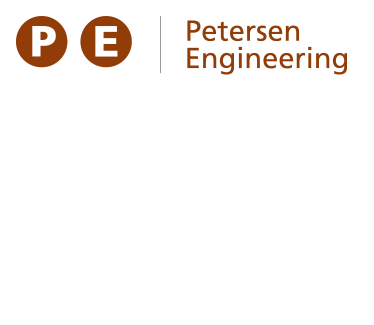Rotary Log – May 5, 2011
By: Jonathan M. Flagg
For a slide show: CLICK HERE
Photos by Jim Rini
Cinco De Mayo! Why is that celebrated anyway? That will have to be our trivia question for the week and, as usual, you’ll have to wait until next week’s issue to find out. In the last issue, we posed the following question:
Why do X's at the end of a letter signify kisses?
And the answer is:
In the Middle Ages, when many people were unable to read or write, documents were often signed using an X. Kissing the X represented an oath to fulfill obligations specified in the document. The X and the kiss eventually became synonymous.
But of course you knew that anyway.
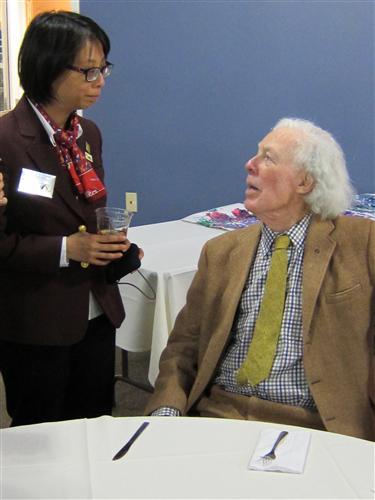
Luis introduced his guest and lovely wife, Carol, who has been married to Luis since 1976! Wow! We only have to live with Luis for an hour or so once a week…Lisa Gante from Citizens Bank was the guest at our table… we were presented with a thank-you poster from kids at the Community Center for our contributions there, but the kids apparently got a little zealous with painting their hands and putting their prints on the poster so that if there were any words of thank-you, they were obscured by the time the poster arrived at our club…Basil made some sort of announcement, but I was only able to discern the words “Pierce Island” and “Thank-you”.
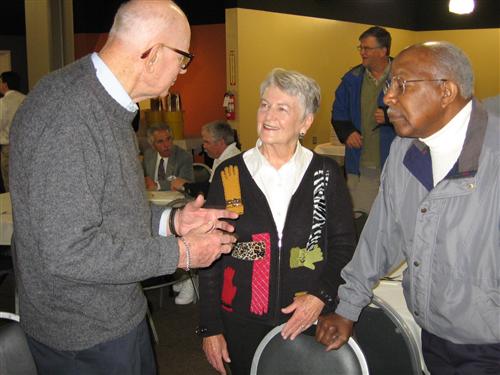
THE PROGRAM
Leonard introduced this year’s Group Study Exchange team, five from Hong Kong and one from Mongolia. The team are all members in the medical field and they are here to learn about our medical care and management and to socialize a bit. Dr. Vito Lee is in charge of this group from Rotary District 3450. Dr. Lee is a part-time General Practitioner who introduced his team along with a little history of Rotary in his District. The first Rotary Club in Hong Kong was founded in 1931; the first Club in Mongolia was founded in 1995. The District has 1,770.00 members and many, many Paul Harris Fellows.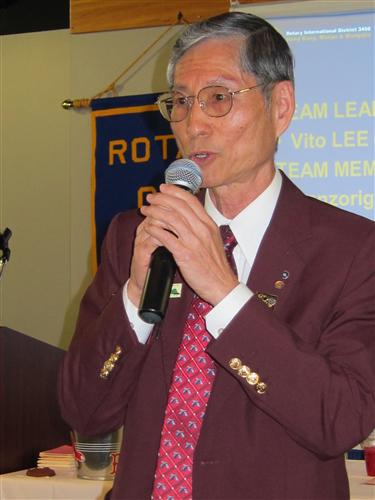
Dr. Lee introduced Louise Sin, a registered nurse from Hong Kong. She works in a hospital that has 600 beds and she referred to that as “relatively small”. Hong Kong, she said, is mostly Buddist in religion with 10% Christian. It is both a shopping and food paradise. Louise then introduced Jennifer Mok an opthimologist who works in a hospital with 1,900 beds and she performs surgeries and lasik, among other services. The life expectancy in Hong Kong is second in the world with men expected to reach an average age of 80 and woman an average age of 86. Hong Kong is experiencing a relatively low birth rate which you would expect would eventually cause problems with the long life expectancy. Hong Kong has a mixture of public and private health care available. There are 41 public hospitals and 13 private. Jennifer introduced Cheryl Law who gave us a little more detail about the cost of the public health care to the individual. Cheryl explained that the public health care system is accessible, affordable and has a great network of communication. While she did not go into the cost of health care on the tax payers, she told us that a patient pays $6.00 for a general consultation including medications and ex-rays. For an in-patient stay, the average cost is $9.00-$13.00 per day. All of the pharmacies and hospitals are networked so that if you receive service at one hospital, but you have been to another hospital, they can pull up all of the records related to your service, including medical history and ex-rays.
Cheryl introduced Michelle Cheung, a registered Chinese Medicine Practitioner. Although Michelle is trained as a conventional doctor, she studied ancient Chinese medicine on nights and weekends and eventually left the practice of traditional medicine to begin a practice that includes acupuncture, herbs, and other natural medicines and practices. Michelle attempts to balance the Yi and the Yang. There are no hospitals that practice ancient Chinese medicine, so Michelle’s services are on an out-patient basis only.
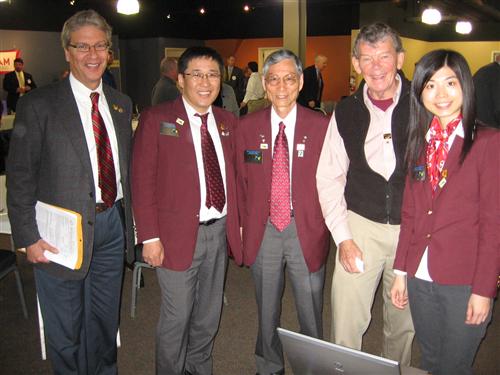
Michelle then introduced Dr. Ganzoriz Baatar, a surgeon from Mongolia. Mongolia was first formalized into a country by Genghis Khan in 1206 A.D. Mongolia now has a multi-party system with a parliament. It is the 9th largest country in square kilometers in the world and the most sparsely populated. Sixty percent of the population is under 30 and 30% of the population breeds livestock for a living. National sports include wrestling, archery and equestrian sports. The health care system in Mangolia has deteriorated, but he did not have an opportunity to explain why.
The Program concluded with a very interesting video about Hong Kong. The nice thing about this program was that it was more than just a program about medical services in Hong Kong and Mongolia; it was about the countries themselves.

/IMG_0335.jpg)

